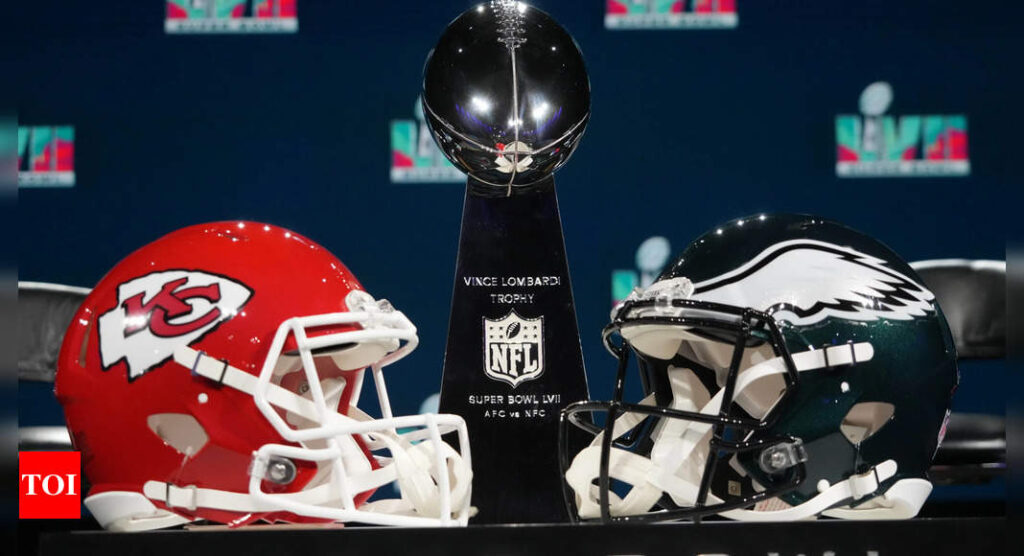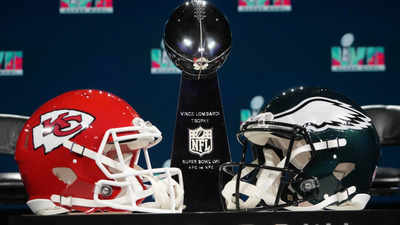Super Bowl overtime rules explained: What happens if the biggest game in football ends in a tie

The Super Bowl has been around since 1967, yet only two editions have needed overtime to crown a champion. The first came in 2017 when the Patriots miraculously erased a 28-3 deficit against the Falcons, with Tom Brady leading New England to victory. The second occurred in 2024 when the Chiefs and 49ers battled into extra time, with Kansas City prevailing. Could history repeat itself? If another Super Bowl heads to OT, here’s what you need to know about the rules.
Super Bowl Overtime Rule: How the NFL Decides a Winner in Case of a Tie
The NFL’s overtime rules have always been a hot topic, especially in the playoffs, where games cannot end in a tie.
Delhi Election Results 2025
While the format remains largely the same in the regular season and postseason, there are crucial distinctions in playoff overtime—especially after the rule changes introduced in 2022. These adjustments were implemented in response to intense matchups like the unforgettable Chiefs vs. Bills 2022 AFC Divisional Round, where Kansas City secured the win with a touchdown on their first overtime possession, leaving Buffalo without a chance to respond.
Super Bowl Overtime: How It Works
In the NFL postseason, including the Super Bowl, overtime is designed to guarantee both teams a fair shot at victory while maintaining the intensity of the game. Here’s a breakdown of the key rules:
1. Duration of Overtime Periods
- Each overtime period lasts 15 minutes, unlike the regular season, where overtime is capped at 10 minutes. This extended period ensures there’s enough time to determine a clear winner.
- If the score remains tied after the first 15-minute period—or if the team that received the second possession hasn’t completed its initial drive—another overtime period begins. This process continues until a winner is declared.
2. Guaranteed Possession for Both Teams
- One of the most significant differences from the regular season is that both teams are guaranteed a chance to possess the ball at least once in overtime. This rule was introduced prior to the 2022 season to address concerns about fairness.
- In the regular season, if the team that receives the opening kickoff scores a touchdown, the game ends immediately. However, in the playoffs, even if the first team scores a touchdown, the opposing team still gets a chance to respond. This ensures a more balanced competition.
“Both teams must have the opportunity to possess the ball at least once during the extra period, unless the team kicking off to start the overtime period scores a safety on the receiving team’s initial possession, in which case the team that kicked off is the winner.” – NFL Rulebook
The only exception is if the team that begins with the ball commits a safety. In this rare scenario, the game ends, and the kicking team is declared the winner, just as in the regular season.
3. Scoring and Winning the Game
If the first team to possess the ball doesn’t score, or if the score is tied after both teams have had a possession, the game continues, and the next score—by any method (touchdown, field goal, or safety)—wins.
Importantly, if a team scores a touchdown to win the game, extra points are not attempted, as the game ends immediately upon the score.
4. Timeouts and Challenges
Each team is allotted three timeouts per half (with two overtime periods counting as a half). This allows for strategic clock management during the extended play.
There are no coach’s challenges in overtime. All replays are initiated by the replay official, ensuring that critical calls are reviewed without disrupting the flow of the game.
5. Multiple Overtime Periods
If the score is still tied after the first overtime period—or if the second team’s initial possession hasn’t concluded—another 15-minute period begins. There’s a two-minute intermission between overtime periods, but no halftime break after the second period.
If the game remains unresolved after four overtime periods, a new coin toss takes place, and play continues until a winner emerges. The NFL is committed to playing as many overtime periods as necessary to determine a victor.
“If there is still no winner at the end of a fourth overtime period, there will be another coin toss, and play will continue until a winner is declared.” – NFL Rulebook
6. Coin Toss and Captain’s Choice
Overtime begins with a coin toss, and the winning team can choose to kick, receive, defer, or select which goal to defend.
If the game goes into a second overtime period, the captain who lost the first coin toss gets to make the choice—unless the team that won the toss deferred their decision initially.
Key Takeaways for Fans
For NFL fans, understanding the postseason overtime rules is crucial, especially during the high-pressure moments of the playoffs. Here are the most important points to remember:
- Overtime periods are 15 minutes long, and multiple periods are played if necessary.
- Both teams are guaranteed a possession, unless the receiving team commits a safety on the first drive.
- The next score wins after both teams have had their chance, but extra points are skipped if the game ends on a touchdown.
- There are no coach’s challenges, and each team gets three timeouts per half.
These rules ensure that the NFL postseason remains one of the most exciting and fair competitions in sports, with every team given a fair shot at victory.
Also Read: Jason Kelce shrugs off extra halftime rest advantage as brother Travis Kelce gears up for fifth Super Bowl appearance
The NFL’s postseason overtime rules are a fascinating blend of strategy, fairness, and excitement. By guaranteeing both teams a chance to possess the ball and extending the length of overtime periods, the league has created a system that rewards skill and resilience. Whether you’re watching the Super Bowl or a nail-biting divisional playoff game, these rules ensure that the outcome is decided on the field, not by the flip of a coin. So, the next time you’re watching an overtime thriller, you’ll know exactly what’s at stake and how the game will unfold.






